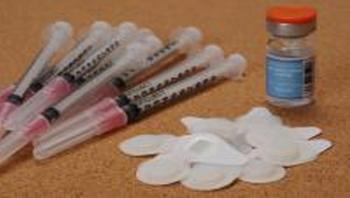
News
Advertisement


Advertisement




Advertisement








The annual ritual of visiting a doctor's office or health clinic to receive a flu shot may soon be outdated, thanks to the findings of a new study published in the journal Vaccine. The research, which involved nearly 100 people recruited in the metropolitan Atlanta area, found that test subjects could successfully apply a prototype vaccine patch to themselves. That suggests the self-administration of vaccines with microneedle patches may one day be feasible, potentially reducing administration costs and relieving an annual burden on healthcare professionals.















Advertisement
Advertisement
Trending on Infection Control Today
1
Bug of the Month: The Quiet Guest in the Dust
2
What Is Effective Preparedness for Emerging Respiratory Viruses? Shazia Irum, MSC, MBA, RN, CIC, CPHQ, FAPIC, answers
3
Continuous Photohydrolysis Disinfection Cuts MDROs, COVID-19, and Hospital Transfers in Long-Term Care, Study Finds
4
Influenza D and Canine Coronavirus: Why Underrecognized Animal Viruses May Be the Next Respiratory Threat
5